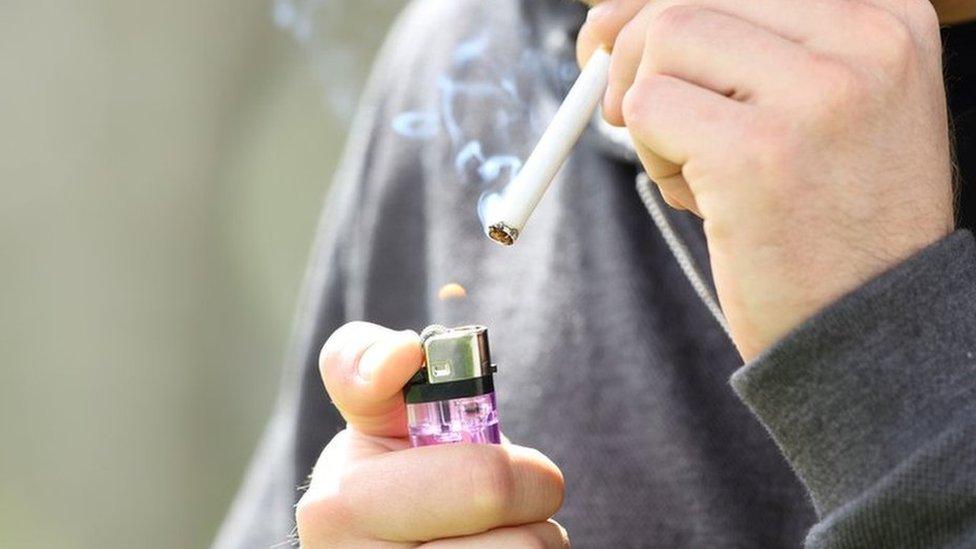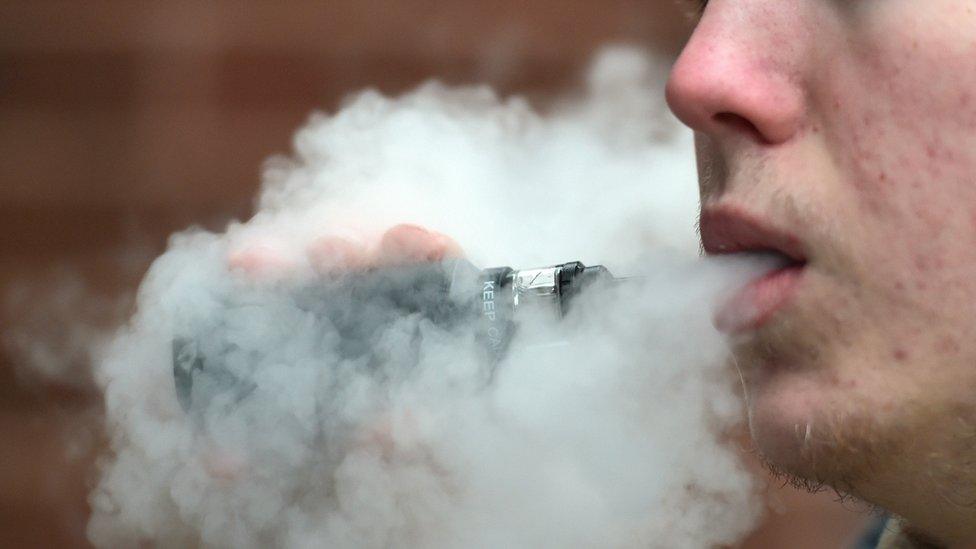Southampton: Boys who smoke risk passing on damaged genes
- Published

Early puberty may be a critical window for physiological changes in boys, the study suggested
Boys who smoke in their early teens risk passing on damaged genes to their own children, new research has found.
The study from the universities of Southampton and Bergen in Norway examined 875 people aged between seven and 50, and the smoking behaviour of their fathers.
Smoking increased the chances of their children developing asthma, obesity and lung problems, the scientists said.
The researchers also fear vaping could cause similar inherited health issues.
Scientists found damaged genes in the children of men who smoked before the age of 15.
The findings were "much more pronounced" in children whose fathers started smoking during puberty, compared to those who started smoking at any time before conception.
Dr Negusse Kitaba, research fellow at the University of Southampton, said: "This is when the stem cells are being established which will make sperm for the rest of their lives."

One in five shops are willing to sell vapes to under 18s, a Trading Standards investigation found
The evidence came from people whose fathers smoked as teenagers in the 60s and 70s, when smoking tobacco was much more common.
But nicotine found in e-cigarettes could have a similar effect, according to University of Southampton professor John Holloway.
He said: "It's deeply worrying that teenagers today, especially teenage boys, are now being exposed to very high levels of nicotine through vaping.
"We can't definitely be sure vaping will have similar effects across generations but we shouldn't wait a couple of generations to prove what impact teenage vaping might have."
Only people aged 18 and over can buy vapes or e-cigarettes in the UK, but there has been growing pressure on the government to crack down on them being illegally sold to children.

Follow BBC South on Facebook, external, Twitter, external, or Instagram, external. Send your story ideas to south.newsonline@bbc.co.uk, external.
Related topics
- Published20 July 2023

- Published24 May 2023

- Published20 August 2023
